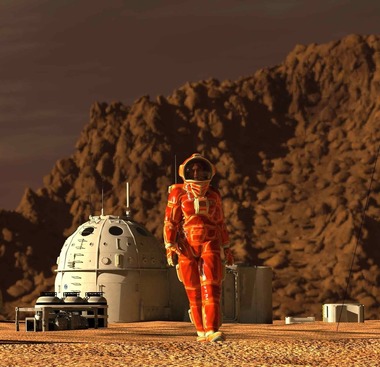Rosemary S. A. Shinkai, DDS, MSc, PhD Professor of Dentistry, Pontifical Catholic University of Rio Grande do Sul, Brazil
We still do not know much about the changes in dental and orofacial structures, functions, and diseases beyond Earth. Early studies on aerospace dentistry published at the end of the 1960’s and 1970’s addressed some concerns about oral health in astronauts and challenges for dental treatment delivery in space. If astronauts are selected for being the most prepared and healthy humans to withstand the hard conditions in outer space, what about everyday regular people, the very young or old individuals? Or pregnant space voyagers? Microgravity and radiation in long-term spaceflights and a lifelong stay in space stations or settlements would require specific oral health care. Teeth, gums, tongue, bones, and muscles are part of a complex system, which is highly innervated and irrigated by blood vessels to allow chewing, swallowing, speaking, and smiling. Saliva is produced by a number of large and small salivary glands to lubricate the mouth, form the food bolus, and counterbalance acids produced by mouth bacteria after meals. Recent studies have shown that the microgravity and spaceflight environment alters jaw bone physiology, dental development, saliva proteins, and salivary gland morphology in mice flown on a US shuttle and a Russian biosatellite. Another study revealed that adult rats submitted to gravity tests showed remodeling of craniomandibular bones. Simulated microgravity also modified gene expression and physiology of Streptoccocus mutans and Streptoccocus sanguinis, possibly altering the cariogenic potential of these bacteria. However, the specific effect of space radiation also needs to be investigated.  Will oral health care need adapting for long-term Mars settlement? Will oral health care need adapting for long-term Mars settlement? It still is unknown to what extent the same effect would occur in human astronauts. Besides the potential structural and physiological changes in the craniomandibular system, other behavioral factors and epigenetics are involved in space oral health. For example, dental caries result from a frequent exposure to acids produced by mouth bacteria after ingestion of sugar, mainly sticky or soft, paste-like foods. Thus, eating and cleaning habits modify the risk for dental caries. And the protective saliva flow and composition vary with water drinking, chewing stimulation, medication, and stress. All these factors may be altered in space life and would affect individual responses to not only dental caries risk, but also gum inflammation, orofacial pain, bone loss and repair. Understanding the underlying mechanisms to prevent oral health problems and have effective interventions seems to be appropriate for the planning of long-term space travel. So, space dentistry may be an interesting job in the future! Comments are closed.
|
Welcometo the InnovaSpace Knowledge Station Categories
All
|
InnovaSpace Ltd - Registered in England & Wales - No. 11323249
UK Office: 88 Tideslea Path, London, SE280LZ
Privacy Policy I Terms & Conditions
© 2024 InnovaSpace, All Rights Reserved
UK Office: 88 Tideslea Path, London, SE280LZ
Privacy Policy I Terms & Conditions
© 2024 InnovaSpace, All Rights Reserved
 RSS Feed
RSS Feed